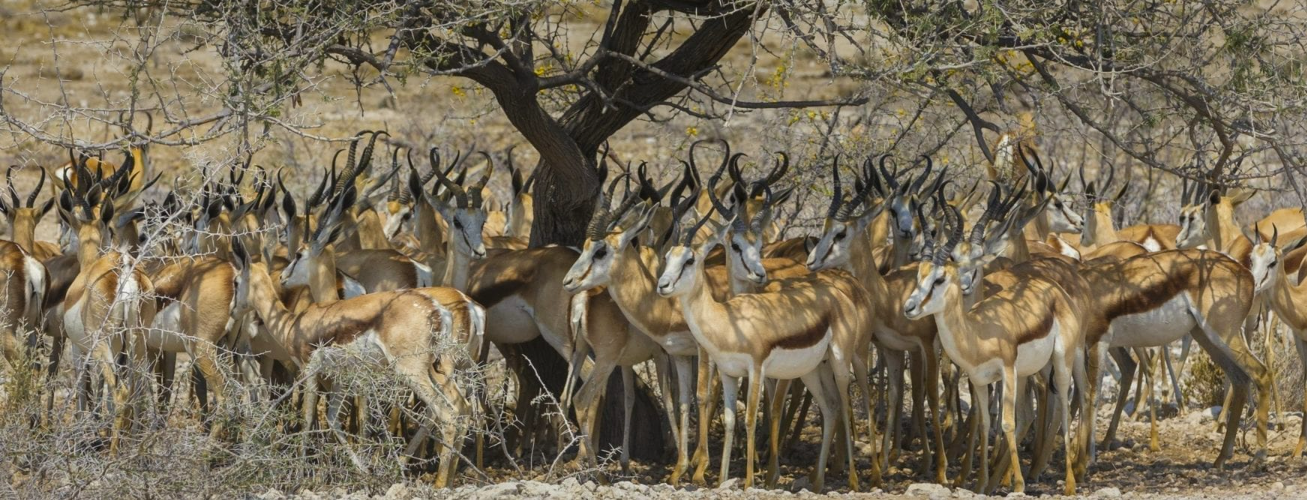
About our international hunting discussion forum
28 Jul 2022
Written by Francine Barchett
The whole hunting story has not been put together. A comprehensive literature review on recreational hunting (Di Minin et al., 2021) tells us: “Evidence is lacking to answer the pressing questions of where and how hunting contributes to just and sustainable conservation efforts.” As trophy hunting ban proposals show no sign of abating and general interest in hunting is waning, one must ask: “Is there a future for trophy hunting? Or for recreational hunting in general?”
Earlier this year, I met with Ms Catherine Semcer of PERC and an AWEI Fellow, Dr Brian Child of the University of Florida and an AWEI Board Member, and Dr Keith Tidball from Cornell University, all members of my PhD committee, to begin unpacking the sustainability of trophy hunting in Southern Africa. In June, our curiosities led us to initiate a hunting forum.
The International Hunting Discussion Forum aims to gather diverse stakeholders to address gaps in hunting’s sociocultural, conservation, and economic drivers and challenges. While we largely focus on trophy hunting in Southern Africa, we apply comparative lenses from North America and Europe to learn from each other.
Our group is a unique contributor to the hunting-conservation space due to its format and membership base. Each month, a different expert leads us through a topic, allowing an open, frank, and honest questioning of an existing hunting paradigm or issue. During our first meeting, for example, we compared hunting and conservation models across continents, including the North American Model of Wildlife Conservation and Southern African and European frameworks.
We are also focused on diversity. We include not only senior-level academics and practitioners but also youth and mid-career professionals. Young conservationists are often not part of high-level discussions, yet when groups allow a variety of backgrounds, cultures, and experiences, research shows that they are more likely to solve problems and be innovative.
So far, we have eighteen confirmed institutions represented. Professors and masters and PhD students hail from Southern African Wildlife College, Oxford, Stellenbosch, and more. We have professional hunters, conservation practitioners, and community leaders representing Zimbabwe, Botswana, Africa as a whole, and the Community Leaders Network of Southern Africa. Furthermore, we have past and present representatives from American-based trophy hunting organizations and from the Nordic countries. Diverse experiences and perspectives will allow us to generate both research and practical recommendations that examine and bolster hunting’s links to conservation and communities.
While our group has just begun, we are optimistic for what is ahead. As the Convention on Biological Diversity’s Post-2020 Framework underscores the need to build strategic partnerships for reaching biodiversity goals, this group is an opportunity to bring together academics, practitioners and senior- and junior-level leaders to enhance an important part of the global conservation puzzle, of which Africa plays a substantial role.
Francine Barchett, AWEI Fellow
Please reach out to Francine via email (fgb43@cornell.edu) if you have any questions. The forum is keeping the names of participants (other than Core Group members) and video recordings private so as to preserve personal privacy and the sensitivity of topics covered.
We support the free flow of information. Please share:
More content
-

What Foot and Mouth Disease-free means for South Africa’s game meat trade
Ms Lydia Daring Bhebe…Explore the latest developments in South African provinces achieving and maintaining Foot and Mouth Disease (FMD) free status…
Articles -

The world wildlife trade regulator is 50 – here’s what has worked and what needs to change
Daniel Challender…Most countries implement Cites, the Convention on International Trade in Endangered Species of Wild Fauna and Flora as…Articles -

Enabling Sustainable Wildlife Trade
Prof Francis VorhiesEnabling sustainable wildlife trade is a key policy measure for growing Africa's wildlife economy. In this respect, CITES…
Articles -

Has CITES become too complicated to be effective?
Prof Francis VorhiesGovernments agreed to the text of CITES in the 1970s, which is quite straightforward. However, the agreement’s implementation…
Articles -

From poachers to providers: Can Africa's wild meat market save wildlife?
Dr Wiseman NdlovuHave you ever considered how wild meat could be more than just a cultural staple but also a…
Articles -

As a fellow of the African Wildlife Economy Institute (AWEI), I am excited to attend the upcoming 3rd…
Articles -

A theory of change to improve conservation outcomes through CITES
Dr Michael 't Sas-Rolfes…Here we articulate the implied theory of change (ToC) underpinning the design and operation of CITES (Convention on...
2025Research -

Wild Meat Value Chain Integration Systems: Opportunities for Value Chain Formalisation and Scaling in Africa
Dr Wiseman Ndlovu…Establishing a legal, safe and sustainable wild meat sector promises to potentially reduce demand for illegally sourced meat...
2025Research -

AWEI's 2024 Wildlife Economy Dialogue Series
Ms Emily TaylorRediscover 2024: A year of insight and inspiration
In 2024, AWEI proudly hosted three ground-breaking dialogue series in…
Articles
Get updates by email
Through impactful research, stakeholder engagement, and professional development, AWEI is supporting the wildlife economy across Africa. Please subscribe for occasional updates on our work and forthcoming events.
Sign up for a quarterly dose of AWEI insights
In a complex and changing world, AWEI generates strategic ideas, conducts independent analysis on wildlife economies, and collaborates with global scholar-practitioners to provide training and expertise for biodiversity conservation, climate resilience, and inclusive economic opportunities in Africa.
